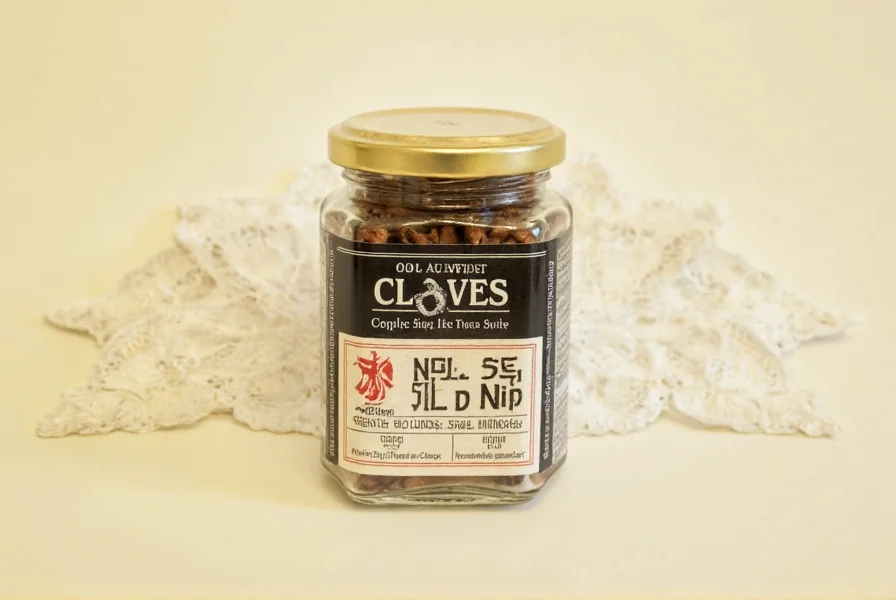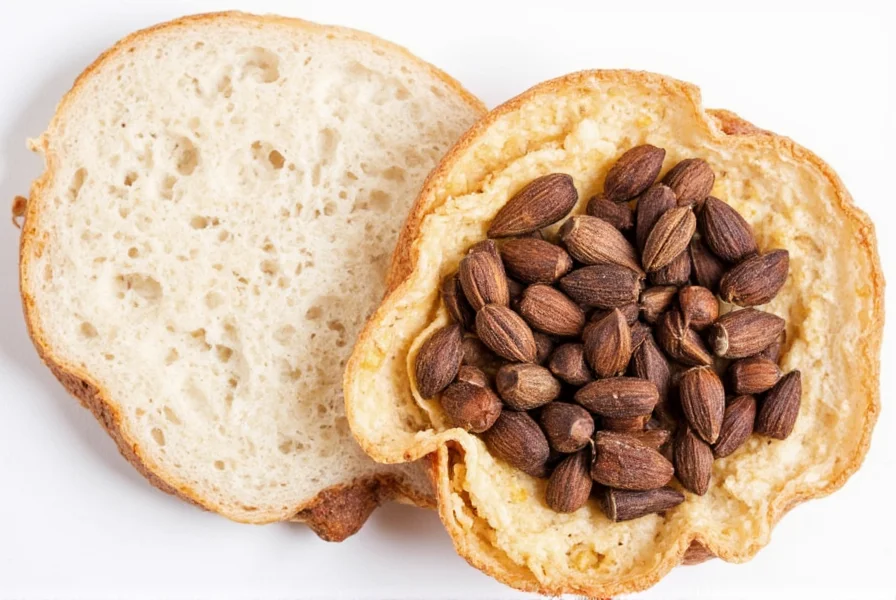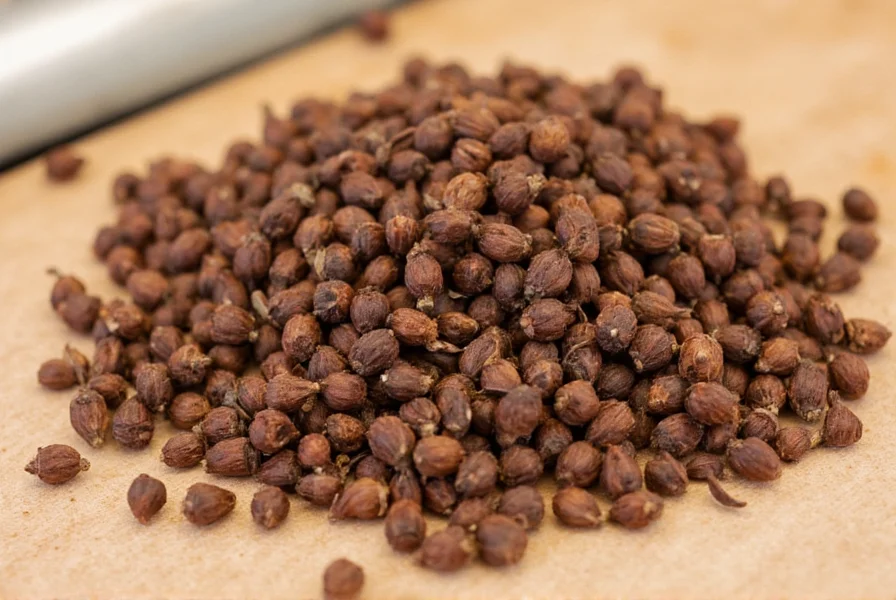Cloves represent one of the world's oldest and most versatile spices, with historical records showing their use dating back to ancient Chinese civilizations around 200 BC. These tiny but powerful buds have journeyed from their Southeast Asian origins to become indispensable in kitchens and apothecaries worldwide. Understanding their properties helps maximize both culinary enjoyment and potential health advantages.
Botanical Background and Varieties
The Syzygium aromaticum tree, belonging to the Myrtaceae family, produces flower buds that transform into cloves. Harvested when pinkish-red and sun-dried until they turn dark brown, these buds develop their characteristic intense aroma. Three primary varieties exist:
| Variety | Origin | Characteristics |
|---|---|---|
| Zanzibar cloves | Tanzania | Highest eugenol content (80-90%), strongest flavor |
| Madagascar cloves | Madagascar | Moderate eugenol (70-80%), balanced flavor profile |
| Indonesian cloves | Indonesia | Lower eugenol (60-70%), milder taste |
Each variety offers slightly different flavor profiles and chemical compositions, making them suitable for various applications. Zanzibar cloves typically command premium prices due to their superior oil content and potency.

Nutritional Composition and Active Compounds
Despite their small size, cloves pack a powerful nutritional punch. A single tablespoon (6 grams) of ground cloves contains:
- 30 calories
- 1 gram protein
- 0.5 grams fat
- 7 grams carbohydrates
- 3 grams fiber
- 110% of the Daily Value for manganese
- 30% of the Daily Value for vitamin K
The primary bioactive compound, eugenol (constituting 70-90% of clove essential oil), works synergistically with other components like beta-caryophyllene and flavonoids. This unique combination creates the spice's distinctive properties. Research published in the Journal of Agricultural and Food Chemistry confirms cloves possess the highest antioxidant capacity among 26 common spices tested.
Evidence-Based Health Benefits
Scientific studies reveal several compelling health benefits associated with clove consumption:
Dental Health Support
Eugenol's natural analgesic and antimicrobial properties make cloves particularly valuable for oral health. A 2018 study in BMC Oral Health demonstrated that clove oil effectively reduces dental pain and inhibits bacterial growth responsible for cavities. Many natural toothpaste formulations incorporate clove extract for these benefits.
Anti-Inflammatory Effects
Research in the Journal of Immunology Research shows that eugenol significantly reduces inflammatory markers like TNF-alpha and IL-6. This suggests potential benefits for conditions involving chronic inflammation, though more human studies are needed.
Blood Sugar Regulation
Promising animal studies indicate cloves may improve insulin sensitivity. A 2019 study in Nutrients found that clove extract helped regulate blood glucose levels in diabetic rats. While human research remains limited, these findings warrant further investigation.

Culinary Applications and Techniques
Understanding how to properly use cloves enhances both flavor and functionality in cooking:
Whole vs. Ground Cloves
Whole cloves maintain their essential oils and flavor compounds longer than ground varieties. When recipes specify "whole cloves," substituting ground cloves requires adjustment—typically ½ teaspoon ground clove equals 6-8 whole cloves. Whole cloves work best in slow-cooked dishes where they can be easily removed before serving.
Flavor Pairing Principles
Cloves complement both sweet and savory profiles. In sweet applications, they pair beautifully with cinnamon, nutmeg, and citrus. For savory dishes, combine with star anise, black pepper, and cardamom. The key to successful pairing lies in balancing cloves' intense flavor—use sparingly as they can easily dominate other ingredients.
Traditional Preparation Methods
Many cultures have developed specific techniques for maximizing clove's potential:
- Infusions: Steep 4-5 whole cloves in hot liquid for 10-15 minutes
- Studding: Pierce ingredients like onions or hams with whole cloves
- Dry roasting: Briefly toast whole cloves before grinding enhances flavor complexity
Proper Storage and Selection
Maximizing shelf life requires proper handling techniques:
Selecting Quality Cloves
When purchasing whole cloves, look for:
- Deep reddish-brown color (avoid pale or yellowish buds)
- Intact stems (indicates freshness)
- Strong aroma when crushed between fingers
- Heftiness in hand (light cloves indicate age/dryness)
Optimal Storage Practices
To preserve potency:
- Store in airtight glass containers away from light
- Keep in cool, dark pantries (below 70°F/21°C)
- Never store near heat sources like stoves
- Whole cloves last 1-2 years; ground cloves maintain quality for 6-12 months
Safety Considerations and Potential Interactions
While generally safe when used as a culinary spice, cloves warrant caution in certain situations:
- Essential oil should never be consumed undiluted (can cause liver damage)
- Excessive consumption may interact with blood-thinning medications
- Topical application requires dilution to prevent skin irritation
- Pregnant women should limit intake to culinary amounts
The European Medicines Agency recommends limiting clove oil consumption to no more than 2.5 mg eugenol per kilogram of body weight daily. For most adults, this translates to approximately 5-10 whole cloves daily when used medicinally.
Frequently Asked Questions
What are the primary health benefits of consuming cloves regularly?
Regular consumption of cloves in culinary amounts provides significant antioxidant protection, supports oral health through natural antibacterial properties, and may help reduce inflammation. The eugenol content contributes to pain relief, particularly for dental discomfort, while manganese supports bone health and metabolism. Research also suggests potential benefits for blood sugar regulation and digestive health when consumed as part of a balanced diet.
How can I tell if my cloves have gone bad or lost potency?
Cloves lose potency gradually rather than spoiling outright. Signs of diminished quality include faded color (from deep reddish-brown to pale brown), weak aroma when crushed, and reduced flavor intensity in cooking. Properly stored whole cloves maintain quality for 1-2 years, while ground cloves last 6-12 months. To test potency, crush a clove between your fingers—if the aroma is faint or musty, it's time to replace your supply.
What's the difference between using whole cloves versus ground cloves in recipes?
Whole cloves retain their essential oils and flavor compounds longer, providing more intense aroma and longer shelf life. They work best in slow-cooked dishes where they can be easily removed before serving. Ground cloves offer immediate flavor distribution but lose potency faster. When substituting, use ½ teaspoon ground clove for every 6-8 whole cloves. Whole cloves provide more controlled flavor release, while ground cloves integrate more quickly into dishes.
Can cloves help with toothache relief, and how should they be used?
Yes, cloves have demonstrated effectiveness for temporary toothache relief due to eugenol's natural analgesic and antimicrobial properties. To use: gently dry a whole clove, place it directly on the affected area, and bite down lightly to release oils. Alternatively, mix 2-3 drops of clove oil with 1 teaspoon carrier oil (like olive oil) and apply with a cotton swab. This provides temporary relief but doesn't replace professional dental care for persistent pain.











 浙公网安备
33010002000092号
浙公网安备
33010002000092号 浙B2-20120091-4
浙B2-20120091-4